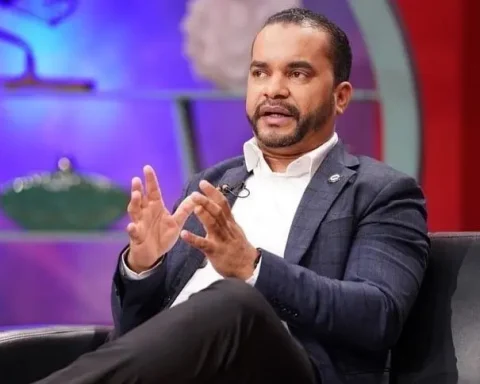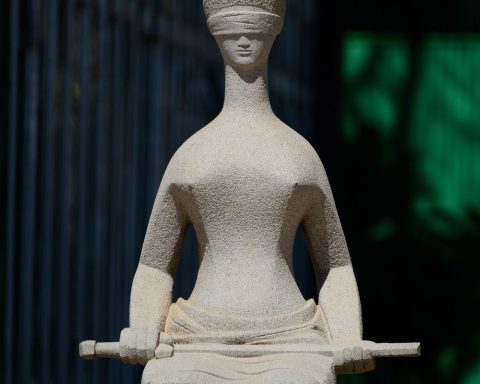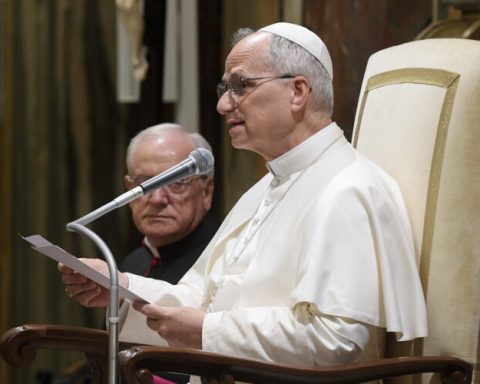The Government of President Gabriel Boric added a new defeat this Monday, December 19, after his second candidate for National Prosecutor did not get the required support in the Senate chamber, and although various pro-government voices insisted on sharing the responsibility for this failure, With the other powers of the State, the truth is that political responsibility falls unequivocally on the shoulders of the President and the sectoral ministers involved, especially on the person in charge of the flow of communication between the Executive Branch and Congress, the Minister of the General Secretariat of the Presidency (Segpres), Ana Lya Uriarte.
After the Constitution Commission recommended rejecting her nomination, the current director of the Anti-Corruption and Legal Unit of the Public Ministry, Marta Herrera Seguel, obtained 26 of the 32 votes required to become the first woman to lead the National Prosecutor’s Office. After the President’s first failed attempt to nominate José Morales, the name of Marta Herrera was surprising even for pro-government parliamentary sectors, who share the hypothesis that this nomination corresponds to a “Failure Plan”, which would have the objective of nominating someone – Herrera- without sufficient support, so that the responsibility for the development of a new quina fell to the Supreme Court.
This is a process that began full of complexities for a government that, in the first instance, nominated José Morales, knowing that he was a prosecutor with strong ties to Piñerismo, an interest group that has expressed great concern that cases involving the violations of human rights during the outbreak do not reach the highest authorities of the government of Sebastián Piñera, against whom there are complaints on the matter. And once that letter fell, they insisted with Marta Herrera, despite the fact that many warned in the director of the Anti-Corruption Unit the continuity of the widely questioned Jorge Abbott, something that was even recognized by pro-government parliamentarians, such as Senator Alfonso De Urresti (PS), and about whose potential rejection La Moneda had information before being nominated.
But once the detail of the vote was known, President Gabriel Boric himself took it upon himself to criticize the Senate’s rejection of Marta Herrera, assuring that these were political disputes and attacks against his government. “It worries me, as President of the Republic, because I have the impression that this vote has more to do with what the citizens reject: internal disputes, roosters with the Government, which are not good for Chile or the citizenry and that they distance themselves from the public good that we have the duty to defend,” the President stated during a ceremony at the Police School in Providencia.
Uriarte’s role
In this line, and far from a self-critical tone, Minister Uriarte ruled out the deployment of a strategy aimed at nominating Herrera, so that the responsibility for developing a new machine would once again be in the hands of the Supreme Court. “We invite you to review the vote, and you will notice that it is not such a strict vote, but that we have votes from the opposition and from the ruling party, in different columns, I approve, I reject and I abstain,” said the Segpres minister.
In addition, the minister and historical militant of the PS emphasized that beyond seeking political responsibilities, the main challenge of the three powers of the State must be in the short term to provide leadership to a Public Ministry that requires new leadership. For the same reason, the name of Herrera, related in form and style to the management of the questioned outgoing prosecutor Jorge Abbott, was never convincing, even for sectors of the ruling party.
In this regard, Minister Uriarte said that “the situation, I believe, is even a little more serious, in the sense that we have tremendous concern on the part of citizens regarding the issue of security, and as a country and as institutions we do not We are managing to give leadership to the National Prosecutor’s Office”. Faced with this challenge, precisely, the Government of President Boric has not managed to come up with the right name.
Regarding the possible risks of the strategy deployed by the Executive in the appointment of the authorities of the Public Ministry, the director of the School of Government and Communications of the Central University, Marco Moreno, said that “this is how the system operates, that with an evaluation inadequate or thinking that a new name drop allows new names to enter the machine to reach one that the Government likes. Let’s remember that neither Morales nor Herrera have been the government’s favorites. I think that there is a risky strategy here, which is do everything possible so that the list runs, and under that strategy, names related to the Government enter ”.
someone has to pay
That “someone has to pay”, explained a pro-government leader in reserve about the second rejection by the Senate of the name nominated by the Government for National Prosecutor. Thus they assured that it gives the impression that the communication strategy of the Government is to transfer the responsibility to the three branches of the State (Executive, Judicial and Legislative). Installing that it was “a defeat of the three powers”, said another leader of a party of the government alliance.
“It cannot be that Minister Camila Vallejo says that this is a failure of the three powers of the State. Those who are failing here by presenting a letter that does not have the support of the Senate and not getting the votes for him to become National Prosecutor is almost exclusively the Government”, says the academic from the U. de Talca and doctor in Political Science, Mauricio Morales.
“Blaming the Senate or the Supreme Court, the only thing that will produce is going to be dangerously confronting the institutions of the State, in circumstances that the Government, as it is the one who takes the machine and decides the appointment, is the most relevant agent during the process,” he adds.
Morales explains that the Government is probably looking for a renewal of the team that the Supreme Court is offering to incorporate someone who is somewhat more in tune with the Government, and at the same time allows him to obtain the necessary votes in the Senate.
“If that is the strategy, it seems to me that it is deeply mistaken, because what it does is pierce even more trust in the institutions,” points out the academic from the U. of Talca.
Marco Moreno, an academic at the U. Central, agrees, and explains that it is a “risky strategy” to “do everything possible so that the list runs for names related to the Government to enter.”
Axel Callis, an election specialist and director of Tú Influyes, has another interpretation and points to the Supreme Court as one of the losers. “What the Government is doing is revealing that the Senate operates in political terms. The disclosure has a cost, but also for the Supreme Court (since two of its candidates have been rejected) ”, he explains.
In this past and for the second time, Justice Minister Marcela Ríos reveals her lack of experience in political negotiation – analysts warn – leaving today as an open flank for the Government. There has been – they say – a “lack of political execution” to which they also link the strike of prosecutors and a “complicated relationship” with the Public Ministry.
In this context, both the eventual strategy of running the list until finding the candidate who achieves the necessary consensus in Congress, as well as the elaboration of a hypothetical “Failure Plan” involved in the nomination of Marta Herrera, are on paper, plans that would imply a high risk for a government that has faced heavy political defeats during its first year in office. Now, the challenge for the Executive is to ensure the continuity of the process, while the Public Ministry continues to be headless.

















